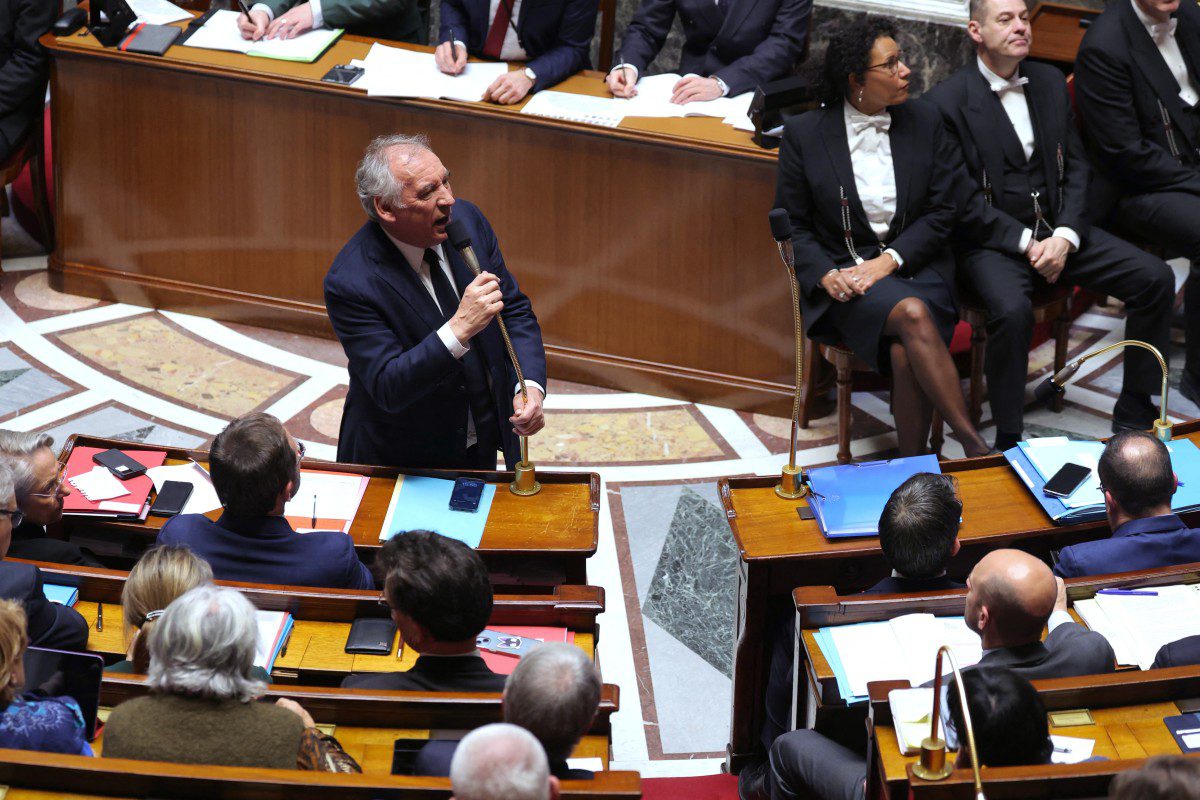
France’s Prime Minister Francois Bayrou at the National Assembly, in Paris, on January 28, 2025.
Thomas Samson / AFP
The French draft budget for 2025 is now in its final preparation stage after negotiations between senators and MPs in a joint committee. Following two days of discussions, a compromise text was reached, but both the Rassemblement National (RN) and the Parti Socialiste (PS) are still withholding judgement on a potential vote of no confidence until Monday, when the text will be examined by both chambers in plenary session.
Alliances have been forming and breaking up at a frenetic pace since the start of the week, demonstrating that France’s political forces are in a feverish state. While, at the start of the week, the Socialists, shocked by the Prime Minister’s comments about “migratory submersion” in France, were considering withdrawing their support for him, a temporary convergence between the left and the centre once again took shape during the select committee debates on the latest version of the budget on Thursday and Friday.
One controversy concerned the future of state medical aid. The adopted version retains the 2024 budget for this programme, which has drawn criticism from the Rassemblement National (RN). They advocate for a drastic reform of this programme, which is considered to be one of the main pull factors for immigration. Centre-right Les Républicains (LR) proposed a €200 million reduction in the budget allocated to state medical aid, but their suggestion was not supported.
Another area of tension is electricity tariffs. The RN is strongly opposed to article 4 of the finance bill, which was adopted by a majority in committee. MP Jean-Philippe Tanguy explained: “Article 4 continues and worsens the European rules on electricity tariffs. It sets electricity prices for years to come at very high levels, which are completely unsustainable for households and suicidal for businesses.” Electricity was considered a ‘red line’ for the RN during the last round of negotiations and the situation has not improved on that particular issue.
In the end, the far left feels that Bayrou’s proposed budget is ‘worse’ than Michel Barnier’s; the PS, despite its partial support for specific measures, wants to remain ‘in opposition’; and the RN feels that it is by no means a compromise text.
At the end of a day of intense debate, the next steps remain uncertain. On Monday, February 3rd, the final bill will be put to a plenary vote. Although the select committee has reached a compromise, there will still not be a majority to pass the finance bill, and François Bayrou will not be able to avoid forcing his budget through under Article 49.3 of the Constitution.
But conditions have changed since December. Parties tempted by obstruction must now consider public opinion, which currently favors stability in government: less than a quarter of French people want the Bayrou government to be sanctioned, and the supporters of this option are mainly to be found on the left and far left.
